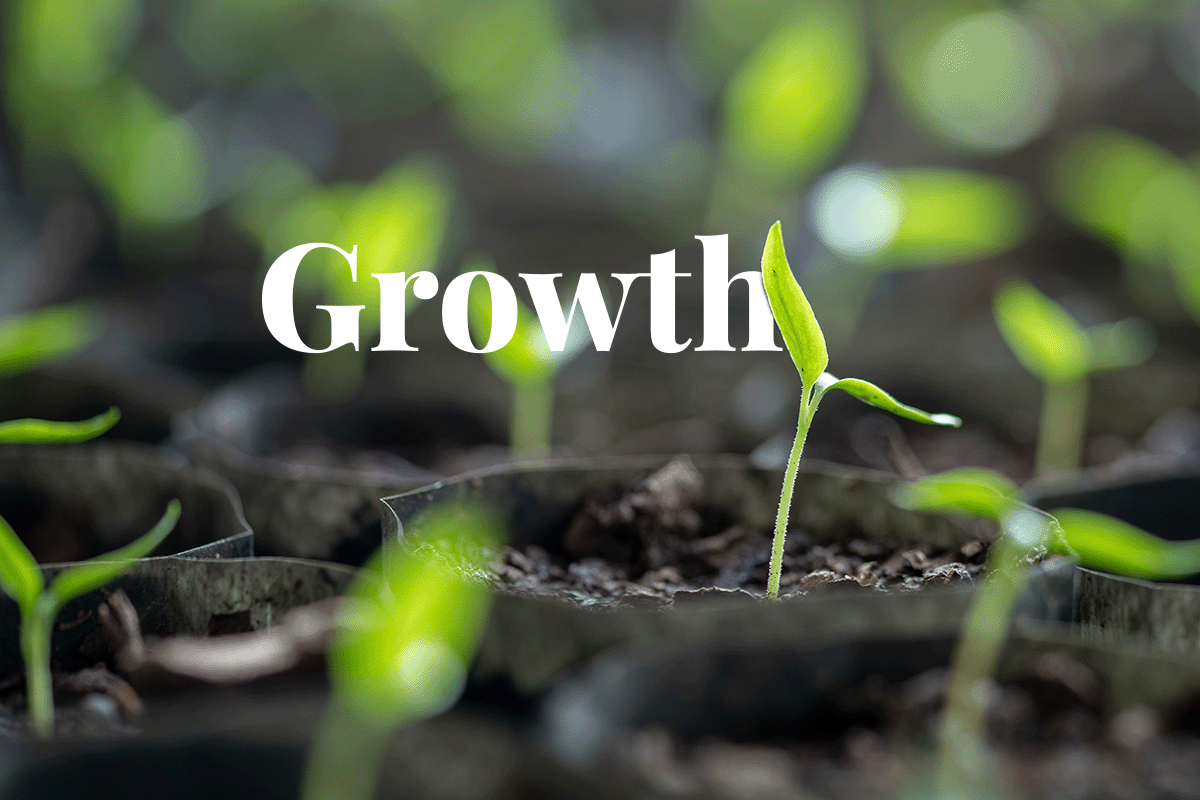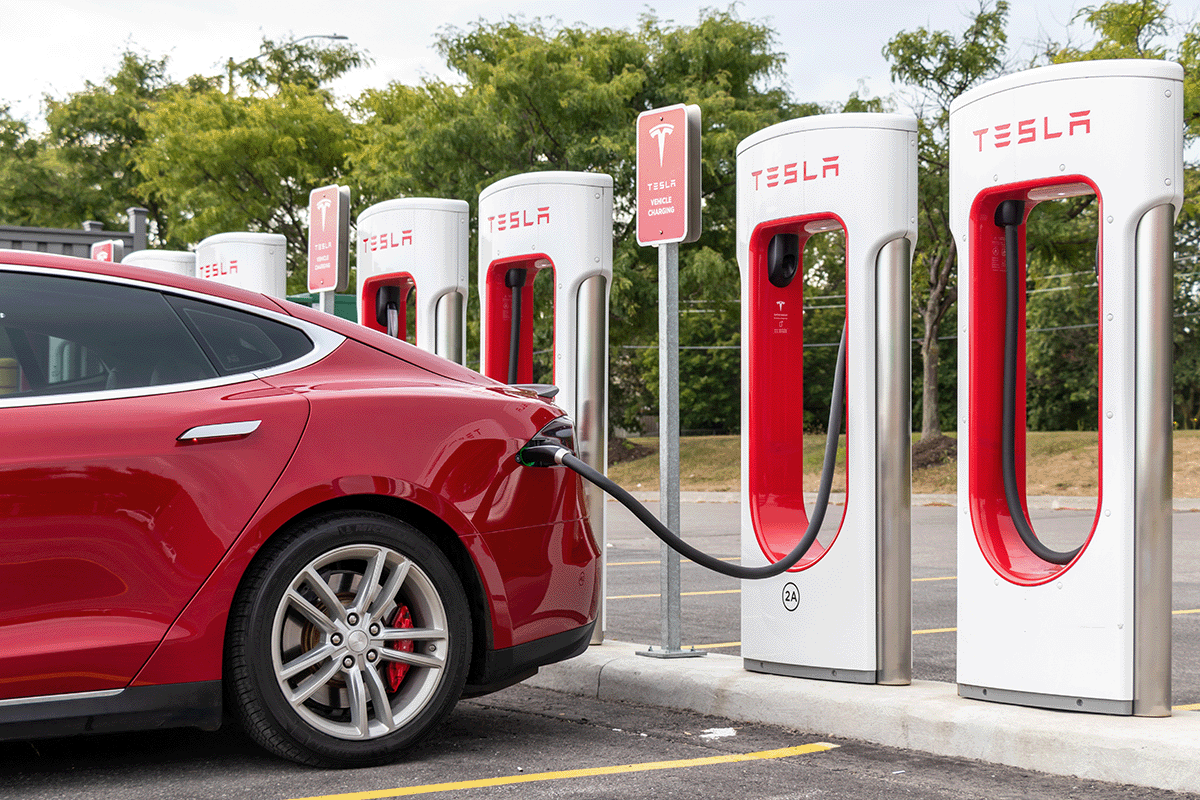In today's business landscape, sustainability has become a powerful driver of company growth and development. As the world becomes more environmentally conscious, consumers increasingly seek products and services that align with their values. This shift in consumer behaviour presents a unique opportunity for companies to capitalise on sustainability and accelerate their growth trajectory.
 Close-up of young growing seedlings in soil bags.
Close-up of young growing seedlings in soil bags.
The shift in consumer behaviour, however, paints only part of the picture of why businesses with a sustainability sensibility are growing faster. In this blog, we will examine all the main reasons why sustainable businesses grow faster and how market giants benefit from sustainability.
1. Market demand and customer preferences
The demand for sustainable products and services is on the rise. Consumers today are more informed about the environmental and social impacts of their purchasing decisions. They are actively seeking out businesses that prioritise sustainability. In fact, according to a 2022 study by NielsenIQ, 78% of consumers say a sustainable lifestyle is important to them and according to a survey from McKinsey & Co, 66% of all respondents and 75% of millennial respondents consider sustainability when making a purchase. Companies that invest in sustainable practices and offer eco-friendly solutions have a distinct advantage in capturing a larger customer base.
 The brand Patagonia has been using recycled materials for its clothing since 1993.
The brand Patagonia has been using recycled materials for its clothing since 1993.
For instance, Patagonia, the outdoor clothing and gear company, has built a loyal following by incorporating sustainability into its core business model. The company's commitment to using recycled materials and reducing its environmental footprint resonates with environmentally conscious consumers, resulting in steady growth and customer loyalty.
Read more: Patagonia: investing in a sustainable future
2. Cost savings through efficiency
Sustainability and efficiency go hand in hand. By implementing sustainable practices, companies can streamline their operations and realise significant cost savings. Energy-efficient technologies, waste reduction measures, and sustainable supply chain practices can reduce resource consumption and lower operating expenses.
One example is Walmart, the retail giant which has successfully embraced sustainability practices. By optimising its logistics and distribution network, it has reduced fuel consumption and transportation costs. The company's commitment to renewable energy has not only decreased its environmental impact but also resulted in substantial cost savings. What’s more, Walmart actively invests in nature restoration projects and is on its way to achieving its net-zero goals.
Read more: Walmart: achieving carbon neutrality by 2040 through investment in carbon-offset projects
3. Competitive advantage
Sustainability provides a competitive edge in the market. Companies that prioritise sustainability differentiate themselves from their competitors by showcasing their commitment to environmental and social responsibility. This differentiation attracts environmentally conscious consumers, investors, and business partners who value sustainable practices.
Unilever, the multinational consumer goods company, is an excellent example of leveraging sustainability for competitive advantage. Through its Sustainable Living Plan, Unilever has set ambitious goals to reduce its environmental impact while also driving growth. The company's sustainable product innovations, such as concentrated laundry detergents that require less water and packaging, have not only reduced its ecological footprint but also strengthened its market position.
Read more: Net zero and a circular economy: Top 3 opportunities and challenges
4. Risk mitigation
Sustainability practices help companies mitigate risks associated with environmental issues, resource scarcity, and changing regulations. By adopting sustainable strategies, businesses become more resilient and better prepared to navigate potential disruptions and vulnerabilities in their supply chains. Governments worldwide are also implementing regulations and incentives to promote sustainability. These policies create a supportive environment for sustainable businesses, providing them with favourable conditions to grow and thrive.
 A Tesla being charged, exemplifying the electric revolution pioneered by the brand since its inception.
A Tesla being charged, exemplifying the electric revolution pioneered by the brand since its inception.
Tesla, the electric vehicle manufacturer, is a prime example of risk mitigation through sustainability. As governments worldwide implement stricter emissions regulations, Tesla's early focus on electric vehicles has positioned the company as a leader in the industry. By anticipating regulatory changes and investing in sustainable transportation solutions as well as anticipating a rise in demand on the market, Tesla has reduced its dependence on fossil fuels and avoided potential financial and reputational risks associated with traditional automakers.
5. Access to capital and investment
Investors increasingly consider environmental, social, and governance (ESG) factors when making investment decisions. Companies that prioritise sustainability are more likely to attract investments from ESG-focused funds and socially responsible investors. These investments provide additional capital for expansion, research and development, and innovation, all of which contribute to faster growth and development. According to a study by Harvard Business Review, companies prioritising sustainability have better financial performance and lower cost of capital, attracting more investors. ESG performers also enjoy higher valuations by a margin of 20%.
Ecolab, a global leader in water, hygiene, and energy technologies, has successfully leveraged sustainability to attract capital. The company's commitment to sustainable water management solutions has resonated with investors who recognise the growing importance of water scarcity and conservation. This has increased investments in Ecolab's innovative technologies, fuelling the company's growth and market leadership.
Read more: Heerema's voyage to a greener future: anchored in sustainability
6. Employee engagement and talent attraction
Sustainability initiatives create a positive work culture and attract top talent. Employees are more engaged and motivated when working for an organisation that aligns with their values and demonstrates a commitment to social and environmental responsibility. This heightened engagement leads to higher productivity, lower turnover rates, and increased innovation, all contributing to faster company growth. Research shows that sustainably-strong companies have 55% better morale, 38% increased employee loyalty, and 16% increased productivity.
Integrate trees into your business
Interface, a global modular flooring manufacturer, is a prime example of sustainability-driven employee engagement. The company's commitment to Mission Zero, its sustainability pledge, has fostered a sense of purpose and pride among employees. This commitment has attracted talented individuals who are passionate about sustainability, resulting in a highly engaged workforce and continuous innovation in sustainable flooring solutions.
7. Reputation and brand value
Sustainable companies enjoy a more positive reputation and increased brand value, which attract more customers and foster customer loyalty. A study by Cone Communications found that 87% of consumers are more likely to buy from companies that advocate for social or environmental issues. This brand advantage can contribute to faster growth and market expansion.
 Apple decided to remove the charger and the headphones back in 2020 as part of their sustainability efforts.
Apple decided to remove the charger and the headphones back in 2020 as part of their sustainability efforts.
Apple's strong commitment to sustainability has not only reduced its environmental impact but also bolstered its global reputation and brand value, placing it as one of the world’s most recognisable brands. The company has made substantial investments in renewable energy, responsible sourcing, and recycling programmes, showcasing its dedication to sustainable practices. This approach has resonated with consumers and investors, positioning Apple as a socially and environmentally conscious brand.
In recognition of its sustainable efforts, Apple has secured accolades and recognition from various sources. It consistently ranks high on lists such as Fortune's World's Most Admired Companies, which considers factors like product quality, innovation, and corporate responsibility. Investors have also taken note of Apple's sustainable performance, leading to increased interest from sustainability-focused and socially responsible investors. This influx of capital supports Apple's growth and further reinforces its reputation as a sustainability leader in the tech industry.
Read more: Meta’s journey to sustainability: pioneering net-zero emissions
DGB Group’s dedication to supporting businesses thrive through sustainability
Investing in sustainability is a strategic decision that drives faster company growth and development. By meeting the increasing demand for sustainable products, companies gain a competitive advantage and attract a larger customer base. Moreover, sustainable practices lead to cost savings, risk mitigation, access to capital, brand value, and enhanced employee engagement. Through real-life examples like Patagonia, Walmart, Unilever, Tesla, Ecolab, Interface, and Apple, we can see how companies prioritising sustainability not only thrive but also contribute to a more sustainable future.
At DGB Group, we understand the comprehensive nature of sustainability. Our extensive experience in partnering with institutions and organisations globally has demonstrated our commitment to developing impactful carbon projects that yield benefits for all stakeholders involved. These stakeholders encompass landowners, local communities, private enterprises, government agencies, and non-governmental organisations. By leveraging our expertise and dedication, we have successfully designed, managed, and maximised the value of carbon projects that deliver tangible and sustainable outcomes.
As we continue to move towards a more sustainable future, it is imperative for companies to integrate sustainability into their strategies. By doing so, they drive their own growth and contribute to the wellbeing of the planet and society as a whole. With a collective effort towards sustainability, we can create a world where economic prosperity, social wellbeing, and environmental preservation go hand in hand.
Contact our experts to kickstart your sustainability journey




